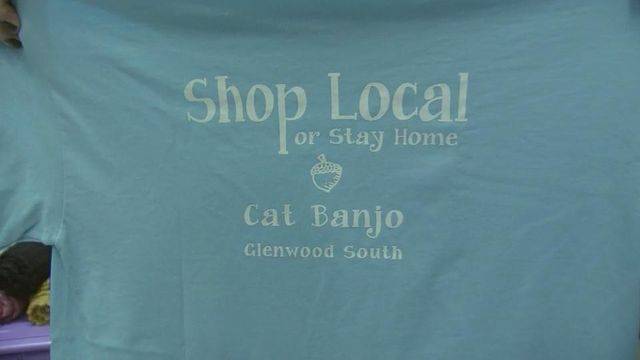Online shopping leaves local stores with less
Online shopping cuts into the bottom line for brick-and-mortar stores that anticipate a holiday boost.
Posted — UpdatedA check of the sales circulars and crowded parking lots would lead one to believe that Black Friday is widely embraced by shoppers too. But that is not exactly the case.
Jim Penny is among the many who fail to see the value in fighting the crowds. "You're not getting a much better deal, especially if you consider the time you spent standing in line and elbowing other people out of the way," he said.
Penny does much of his shopping online, all year-round. "I buy toilet paper from Amazon," he said.
Shoppers like him are cutting into the bottom line for brick-and-mortar stores that anticipate a holiday boost.
Andy Ellen, spokesman for the North Carolina Retail Merchants Association says holiday shopping makes up 20 to 40 percent of retailers' sales. Analysts predict holiday shoppers will spend about the same amount this year as last year. Online sales are expected to grow 15 percent, which means the converse for traditional stores.
"If we start to pare away from this 20 to 40 percent, that's where those guys, those retailers have a hard time keeping the doors open," Ellen said.
"That's the biggest challenge right now – getting people out of their houses and getting them off the couch with their computer and getting foot traffic out into the physical store."
The Small Business Saturday movement is one way that retailers look to lure those shoppers with one-of-a-kind stock and personal service.
At Cameron Village in Raleigh, home to numerous boutiques and niche stores, owners were anticipating a spike in customers Saturday.
"We interact with our customers a lot, through Facebook and our email and in the store," said Debbi Cochran, owner of Cat Banjo. "We just physically tell them, 'We are a local business. We support local artists. Shopping here keeps the money in Raleigh.'"
Cochran has made up T-shirts with the words "shop local or stay home" on them to be given away to the first customers as an extra reward for patronizing her store.
• Credits
Copyright 2024 by Capitol Broadcasting Company. All rights reserved. This material may not be published, broadcast, rewritten or redistributed.






